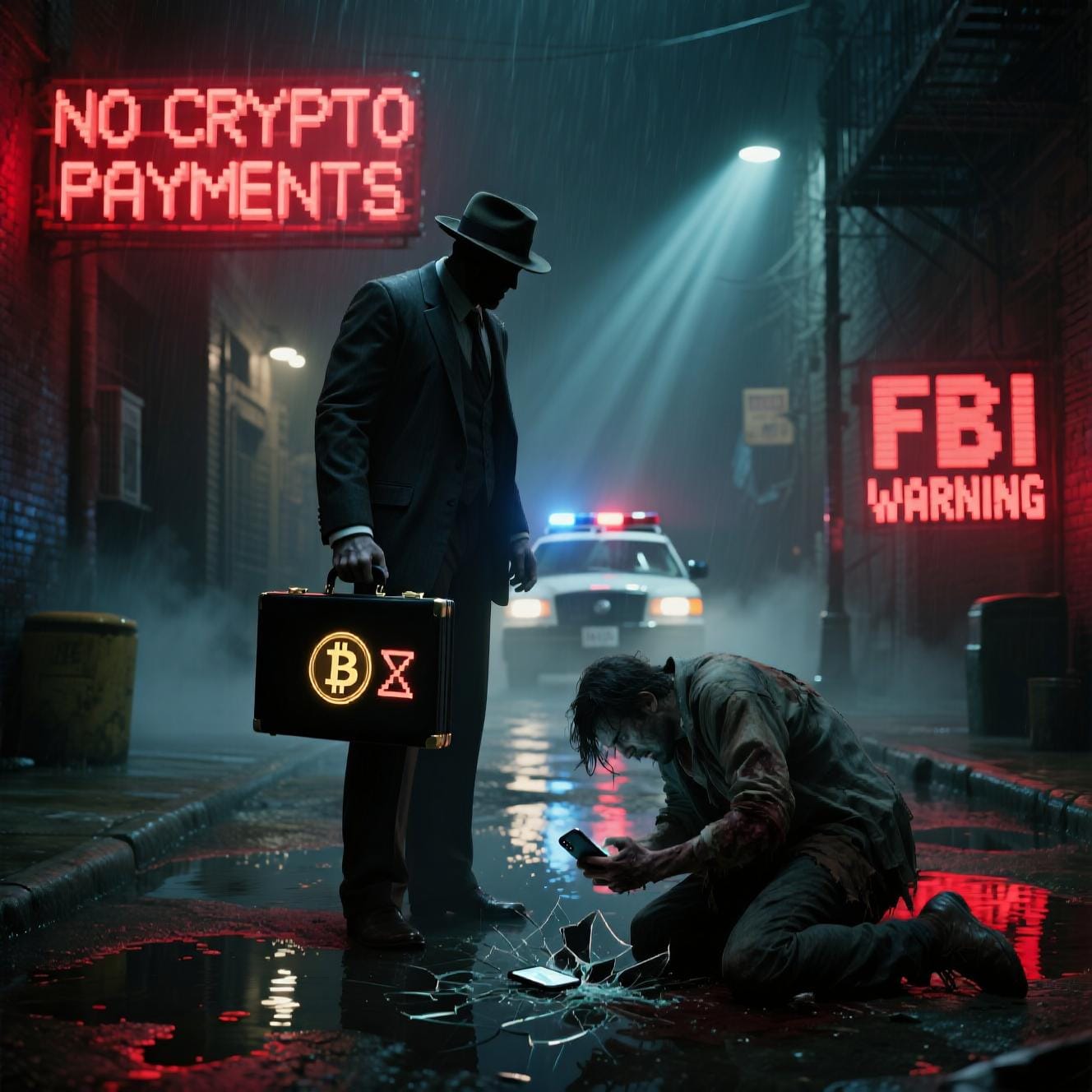FBI Sounds Alarm on Fake Crypto Recovery Scams — “Don’t Pay in BTC”
The FBI is warning crypto investors: if a law firm offers to recover your lost funds but wants payment in cryptocurrency or gift cards, it’s a scam. With $2.5 billion lost to crypto fraud in 2025 alone, scammers are now preying on victims twice—first with hacks, then with fake recovery services.

Double Tap: Scammers Now Targeting the Already Victimized
In a stark new alert, the Federal Bureau of Investigation (FBI) is warning that a growing wave of fake “crypto recovery law firms” is exploiting victims who’ve already lost money to scams. These fraudulent outfits cold-contact individuals—often via email, social media, or Telegram—posing as legal experts capable of tracing and retrieving stolen digital assets.
But there’s a catch: they demand upfront fees paid in crypto or prepaid gift cards. Once the payment is made, the “lawyers” vanish—leaving victims out more money and more vulnerable.
The FBI emphasizes that no legitimate recovery service operates this way. Its message is clear: if it sounds too good to be true, it is.
How the Scam Works
These fake firms often use professional-looking websites, fake testimonials, and even fabricated case results to appear credible. Some mimic real law firms or claim ties to blockchain forensics companies.
They typically target people who have:
- Lost funds in rug pulls, phishing attacks, or exchange hacks
- Posted about their losses on crypto forums or social media
- Been identified through data leaks or dark web monitoring
Once contact is made, the scammer creates urgency: “We can recover 80% of your funds—but you must pay a $5,000 retainer in USDT first.”
And just like that, the victim gets scammed—again.
Red Flags to Watch For
The FBI and blockchain security firm CertiK advise the public to watch for these warning signs:
- Unsolicited contact from a “law firm”
- Requests for payment in cryptocurrency or gift cards (a hallmark of fraud)
- Pressure to act immediately
- No verifiable law license or physical office
- Use of free email domains (e.g., @gmail.com) instead of a professional website
Legitimate legal services do not charge in crypto—and they don’t cold-call victims.
The Bigger Picture: A Surge in Crypto Crime Infrastructure
This warning comes amid a broader rise in crypto-enabled crime. According to FinCEN, the number of crypto ATMs in the U.S. has exploded—from 4,250 in 2020 to over 30,600 today. Many operate without registering as Money Services Businesses (MSBs), violating the Bank Secrecy Act.
These kiosks are increasingly used for:
- Money laundering
- Scam payouts
- Ransom payments
In 2024, the FBI’s Internet Crime Complaint Center (IC3) received nearly 11,000 reports linked to crypto ATMs, with losses exceeding $247 million.
FinCEN also warns of suspicious patterns, including:
- Multiple transactions just below $3,000 (the reporting threshold)
- Large withdrawals by users with no transaction history
- Rapid use of multiple kiosks in a single day
Banks are now urged to monitor customers withdrawing large cash sums specifically for crypto ATM use.
A Glimmer of Hope: Real Recovery Efforts Exist
While fake recovery services thrive on desperation, real progress is being made. The FBI has successfully seized millions in stolen crypto, including a $2.4 million Bitcoin haul from a hacking group affiliate in Dallas.
Treasury Secretary Scott Bessent recently confirmed that seized crypto assets will be used to compensate victims before any are added to a government Bitcoin reserve—offering a legal path to restitution.
Additionally, blockchain analytics firms like Chainalysis and CertiK are helping law enforcement trace stolen funds with increasing precision.
Final Word: Protect Yourself, Not Your Scammer
The harsh reality is that most stolen crypto is never recovered. But that doesn’t mean you should trust anyone offering a miracle fix.
If you’ve been scammed:
✅ Report it to the FBI’s IC3 (ic3.gov)
✅ Document all details
✅ Avoid “recovery” offers that contact you first
✅ Never pay in crypto or gift cards
As the crypto economy grows, so do its predators. The best defense isn’t hope—it’s skepticism.





